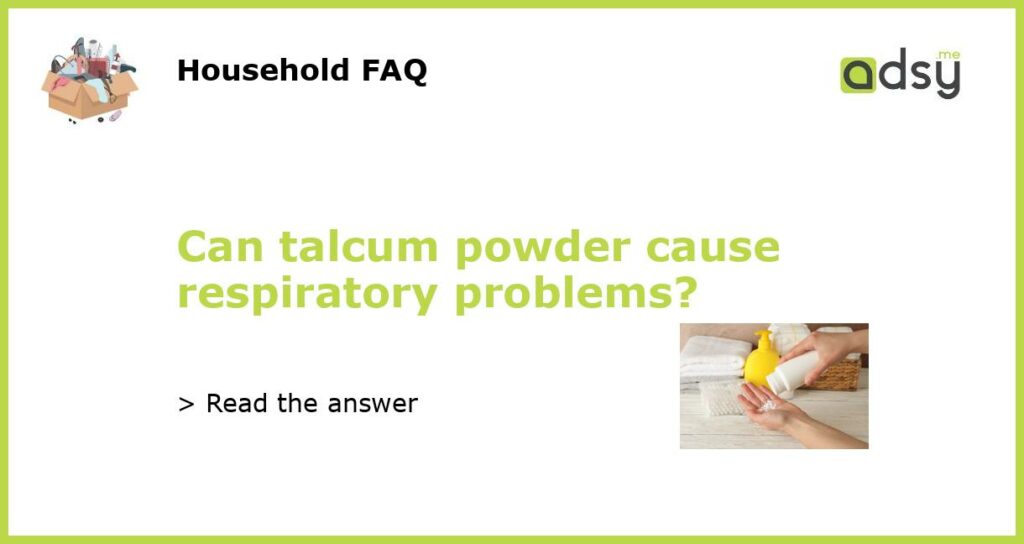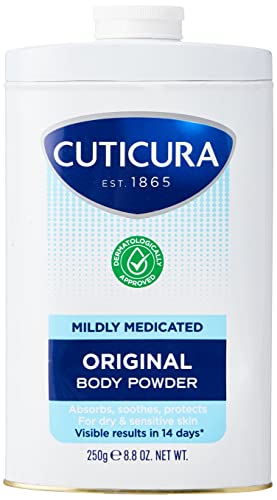What is Talcum Powder?
Talcum powder, also known as baby powder, is made from talc, a mineral primarily consisting of magnesium, silicon, and oxygen. It has been widely used for many years as a cosmetic and personal care product for both adults and babies. Talcum powder is commonly used to keep skin dry, reduce friction, and prevent rashes and irritation.
Possible Respiratory Risks
In recent years, concerns have emerged about whether talcum powder can cause respiratory problems. Inhalation of talcum powder can potentially lead to various respiratory issues, particularly for individuals who use talcum powder frequently and for an extended period.
Some studies have suggested that talc particles can be inhaled and become lodged in the lungs, leading to inflammation and respiratory problems. When talcum powder is applied to the body, it can become airborne, making it easier to inhale. The particles can then travel to the respiratory system and cause irritation.
Link to Ovarian Cancer
While the link between talcum powder and respiratory problems is not definitive, there is more substantial evidence suggesting a potential association between talcum powder and ovarian cancer. The use of talcum powder in the genital area has been found to increase the risk of developing ovarian cancer in some studies.
When talcum powder is used regularly in the genital area, talc particles can travel through the reproductive system and reach the ovaries. It is believed that talc particles may cause inflammation and contribute to the development of cancerous cells. However, the overall increase in risk is relatively small, and further research is needed to establish definitive conclusions.
Precautions and Alternatives
If you are concerned about the potential respiratory risks associated with talcum powder, there are several precautions you can take. Firstly, it is recommended to minimize the use of talcum powder or avoid using it altogether. Instead, you can explore alternative body powders that are made from natural ingredients like cornstarch or arrowroot.
Furthermore, it is advisable to apply powders in well-ventilated areas to reduce the chances of inhaling the particles. When using talcum powder on babies, avoid applying it to their faces to prevent inhalation. Instead, sprinkle the powder onto your hands first and then apply it to areas that are prone to moisture and friction, such as diaper areas.
Consult a Healthcare Professional
If you have respiratory concerns or are experiencing any unusual symptoms, it is important to consult a healthcare professional. They can assess your condition and provide appropriate guidance. They may also recommend avoiding talcum powder in certain cases, such as if you have a pre-existing respiratory condition.
Ultimately, the potential risks associated with talcum powder vary from person to person. While some individuals may experience respiratory issues, others may not have any problems at all. To make an informed decision, it is advisable to stay updated on the latest research and consult healthcare professionals.






